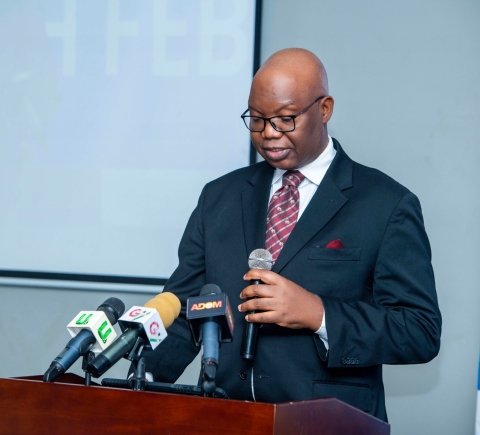A project dubbed Women’s Innovation for Sustainable Enterprises (WISE) which benefitted 14,123 women directly has come to an end.
Implemented by Plan International Ghana, as one of four projects under the Global Affairs Canada’s Innovation for Women's Economic Empowerment in Ghana (IWEEG) initiative, the project was implemented in the Northern, Bono, Bono East and Ahafo regions and was aimed at increased realisation of rights to economic empowerment, well-being and inclusive economic growth for women.
The five-year project directly targeted 12,641 women aged 19 to 55 with 4,046 women to receive agricultural and green business support and indirectly targeted 156,609 people of which 86 per cent were females.
The project had two local partners, Urbanet GH and the Women Integrated Development Organisation (WIDO), as well as other partners from the private and government sectors and 11 Women Rights Organisations (WROs).
The prject was among other things also aimed at strengthening women’s participation in savings groups that provide gender equality, life skills, and business management support in addition to access to financial resources
It was also to build a supportive family and community environment that reinforces women’s role in economic activities, linking women entrepreneurs with women’s rights organisations that can offer peer support and networking and promote women’s economic empowerment through advocacy and influencing
The project also helped to establish women-friendly business hubs including solar-powered hubs to provide a “one-stop-shop” for women entrepreneurs to access gender-responsive business services to start and grow small enterprises as well as provide skills and start-up capital to support women in agribusiness and green business.
The project helped in positioning women-owned businesses to attract and assess credit facilities; as well as improve data sharing, market information and linkages between service providers and stakeholders, including through innovative digital platforms.
Close-out ceremony
At a close-out ceremony in Accra, the Country Director, Plan International Ghana, Constant Tchona said the WISE project asserts that the realisation of economic rights for women was a foundational key contributing to observed improvements in well-being, livelihoods, and healthy family relationships among women, their families, and their communities.
The project he said was another convincing example of the transformation that takes place at the household level when women are supported with an enabling environment to fully participate in economic activities.
Citing a World Bank article “Breaking the 'Grass Ceiling': Empowering Women Farmers,” published in March 2018, it said women make up almost half of the agricultural labor force in developing countries, but their productivity was limited by barriers to finance, access to inputs, extension services, and land rights.
He said women’s equal access to land, affordable financial services, and the realisation of their economic rights must be prioritised to achieve economic justice and equality for women adding that investing in women’s economic empowerment sets a direct path toward gender equality, poverty eradication, and inclusive economic growth.
Mr Tchona said the project used Plan International’s life-cycle approach to women’s economic empowerment, which was a holistic methodology aimed at creating an enabling environment for women’s full participation in economic activities explaining that using this approach, WISE worked with partners to implement interventions that sought to reduce barriers for women by addressing social norms, gender inequality, and their links to economic empowerment, provide market-relevant education, training, and skills development, increase access to productive resources, financial inclusion, and digital inclusion among girls and young women, reduce female unpaid care and domestic work among others.
Gender equality matters
The Director, Ghana Programme, High Commission of Canada to Ghana, , Kathleen Flynn Dapaah, in a remark, said the project was successfully implemented due to Canada’s Feminist International Assistance Policy (FIAP) as it was the fundamental underpinning all of Canada’s development work worldwide.
“We believe that gender equality matters, and that the empowerment of women are central to ending poverty, promoting prosperity and ensuring peace”.
The Chief Executive Officer, Association of Ghana Industries (AGI), Seth Twum-Akwaboah in a remark also said at the heart of sustainable development lied a fundamental truth which was that “when rights are realised, growth is inevitable” saying that the WISE initiative had been a testament to this principle, proving that when women have access to opportunities, resources, and an enabling environment, they thrive—and when they thrive, entire communities benefit.
The AGI he said played a crucial role in mentoring 51 selected women, by guiding them through business development strategies, and providing them with the necessary industry insights and networking opportunities.
“At AGI, we believe that empowering women entrepreneurs is key to strengthening Ghana’s economy. Through our mentorship programmes, advocacy efforts, and industry partnerships, we have worked to ensure that these women receive the support, visibility, and resources needed to scale their businesses and create sustainable enterprises.
At the close-out programme some of the women who benefited from the project testified of how WISE has transformed their lives while others also brought some of their products to sale at an exhibition.

